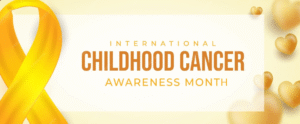Welcome to the world of healthy habits! Are you ready to take control of your blood pressure and improve your overall health and well-being? In today’s fast-paced and stressful world, hypertension has become a common health concern. But don’t worry, we’ve got you covered! By incorporating simple yet effective habits into your daily routine, you can effectively manage hypertension and live a healthier and happier life.
Before we dive into these habits, let’s lay some foundation about hypertension. Essentially, hypertension is when your blood pressure is consistently higher than it should be, which can damage your blood vessels and lead to all sorts of health problems. It’s like the sneaky ninja of health problems, creeping up on us without warning.
According to the World Health Organization (WHO), hypertension is a major public health problem worldwide, responsible for over 10 million deaths each year.
But here’s the good news—hypertension can be prevented and managed through healthy habits. In fact, it’s estimated that over 20% of adults in Nigeria have hypertension, but with the right knowledge and habits, you can avoid becoming a statistic. That’s why we’re here—to equip you with the 7 habits you need to adopt for well-controlled blood pressure.
So, fasten your seatbelts and get ready to take control of your health. Let’s do this!
Eating a balanced diet
Eating a balanced diet that includes fruits, vegetables, whole grains, lean protein, and low-fat dairy products is essential in keeping blood pressure in check. Avoiding processed foods, excessive salt, and sugar is equally important. Remember, an apple a day keeps the doctor away!
Exercise
Regular exercise is another essential component of a healthy lifestyle. It not only helps manage blood pressure but also offers numerous benefits for physical and mental well-being. Exercise can help you maintain a healthy weight, improve cardiovascular health, boost your mood, increase your energy levels, and enhance your overall quality of life. It can also reduce the risk of developing chronic diseases like diabetes, obesity, and cancer, strengthen your immune system, promote better sleep, and help manage stress and anxiety.
When it comes to exercise, finding an activity that you enjoy and can sustain over time is key. Even small changes to your daily routine can make a big difference. Taking the stairs instead of the elevator, going for a brisk walk after dinner, or engaging in other forms of physical activity can go a long way. Remember to consult with your doctor before starting a new exercise routine, especially if you have any underlying health conditions. With consistency and commitment, incorporating exercise into your daily routine can become a habit that you enjoy and benefit from for years to come. So, let’s get moving towards a healthier, happier lifestyle!
Maintain A Healthy Weight
Maintaining a healthy weight is crucial in managing high blood pressure and promoting overall health. When you carry excess weight, it can put a strain on your heart and blood vessels, causing your blood pressure to rise. However, achieving a healthy weight is not about being skinny or having a six-pack; it’s about finding a balance that works for you and your body.
One effective way to achieve and maintain a healthy weight is by eating a balanced diet that includes plenty of fruits, vegetables, whole grains, lean proteins, and low-fat dairy products while avoiding processed foods, excessive salt, and sugar. Additionally, regular exercise can help you burn calories, strengthen your heart, and lower your blood pressure.
Remember, weight management is a journey, not a destination. It’s important to set realistic goals and make sustainable lifestyle changes that you can stick to in the long run. By doing so, you can improve your overall health, feel more confident in your own skin, and reduce your risk of developing health problems associated with excess weight. So, start small, be consistent, and take note of your progress along the way.
Limit Alcohol Consumption
Although a glass of wine or a beer may be a tempting way to unwind after a long day, consuming too much alcohol can have negative consequences for your blood pressure. Excessive drinking can strain your heart and raise your blood pressure, increasing your risk of developing serious health problems over time. If you choose to drink, it’s important to be mindful of your alcohol consumption and limit yourself to one or two drinks per day. By setting clear boundaries for yourself, you can avoid the harmful effects of overindulging and keep your blood pressure in check. And if you find it difficult to stay within your limits, remember that a hangover is never worth the risk. By making responsible choices when it comes to alcohol, you can protect your health and enjoy a happy, healthy life.
Quit Smoking
Yes, that’s correct! Smoking is a major risk factor for hypertension and other health problems. The chemicals in tobacco smoke can damage the lining of your blood vessels, causing them to become narrow and stiff. This makes it harder for blood to flow through them, resulting in increased blood pressure. If you’re a smoker, quitting is the best thing you can do for your health. Within just a few weeks of quitting, your blood pressure will start to decrease, and within a year, your risk of heart disease and stroke will be halved. Over time, your risk of developing other smoking-related health problems, such as lung cancer and chronic obstructive pulmonary disease (COPD), will also decrease. Quitting smoking can be challenging, but there are many resources available to help you. Talk to your healthcare provider about the best way to quit smoking, and consider joining a support group or using nicotine replacement therapy to manage withdrawal symptoms. Remember, every time you resist the urge to smoke, you’re taking a step towards better health and lower blood pressure.
Manage Stress
Managing stress is crucial for maintaining good physical and mental health. Practicing self-care, such as getting enough sleep, eating a healthy diet, and exercising regularly, is an effective way to reduce stress. Mindfulness techniques like deep breathing and progressive muscle relaxation can also help calm the mind. Connecting with others, whether through spending time with loved ones, joining a support group, or seeking therapy, can relieve stress as well. Learning to accept situations that are beyond our control instead of constantly trying to control them can be a powerful way to reduce stress and find peace of mind. Remember that stress is a natural part of life, but managing it effectively can lead to a more balanced and fulfilling life. Don’t hesitate to seek help if you need it, and keep in mind that taking care of yourself is essential for handling life’s challenges.
Get Enough Sleep
That’s right! Getting enough sleep is crucial for overall health, including maintaining healthy blood pressure. Lack of sleep can lead to various health issues, including high blood pressure. So, prioritize sleep and aim for at least seven to eight hours per night. If you’re having trouble sleeping, try establishing a regular sleep routine, creating a relaxing sleep environment, and avoiding caffeine and electronic devices before bedtime. By making sleep a priority, you’ll be on your way to better health and well-being.
In conclusion, by taking small steps towards healthy habits and incorporating them into your daily routine, you can improve your overall health and reduce your risk of developing hypertension. Remember, maintaining healthy blood pressure is not just about taking medication; it’s about making lifestyle changes that support a healthy heart. Start today and take control of your health for a long and fulfilling life!











2 Responses
Thanks
You’re welcome. Glad you find it helpful.